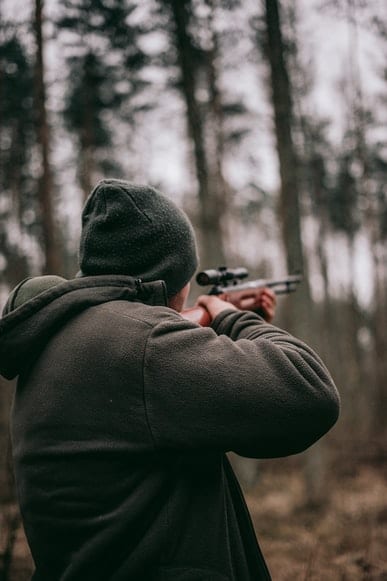Sounds that are louder than 85 dB – which is about the volume of passing highway traffic or a busy restaurant – can cause permanent damage to your auditory system with enough exposure. Sounds between 140 and 190 dB – about the loudness of a gunshot – are loud enough to cause immediate damage after one-time exposure. Therefore, it’s important to protect your hearing while hunting in places such as designated areas around Coronado National Forest.
What the Research Shows
A research team at the University of Wisconsin conducted a study on hunters and target shooters to determine their risk level for noise-induced hearing loss.
After surveying 3,753 men ages 48 to 92, they found that those who hunted regularly had a much higher risk of developing high-frequency hearing loss compared to those who didn’t. This risk increased 7% for every five years each man had been hunting.
Perhaps even more alarming, the research team uncovered that 38% of target shooters and 95% of hunters reported never wearing hearing protection during the previous year.
How Hunting Affects Your Hearing
Hunting is associated with high-frequency hearing loss, which means consonant sounds like “s,” “th” and “v” are most affected. This can cause trouble discerning between similar-sounding words. Many people with high-frequency hearing loss report being able to hear, but not understand, what is said.
For those that shoot right-handed, the left ear tends to suffer more damage since it is closer to and more aligned with the muzzle, and because the right ear is partially protected by head shadow.
How to Protect Your Hearing
Some tips for protecting your hearing while hunting include:
- Invest in hunter’s earplugs. While traditional earplugs or earmuffs will suffice, hunter’s plugs are specially designed to block dangerously loud sounds while letting safe sounds through clearly, so you don’t sacrifice your senses.
- Always wearing hearing protection. Whether you’re about to pull the trigger or not, it’s important to keep your hearing protection on at all times while out hunting. You never know if someone near you is planning to take a shot.
- Shoot smaller caliber firearms. If you shoot the smallest caliber firearm that is still effective for your purposes, you’ll save your ears some damage.
- Check if silencers are legal where you’re hunting. Some states allow you to use a silencer for hunting purposes. Note that you should still wear hearing protection even if you are using a silencer.
To learn more or to schedule an appointment with a hearing protection expert, call Arizona Hearing Specialists today.